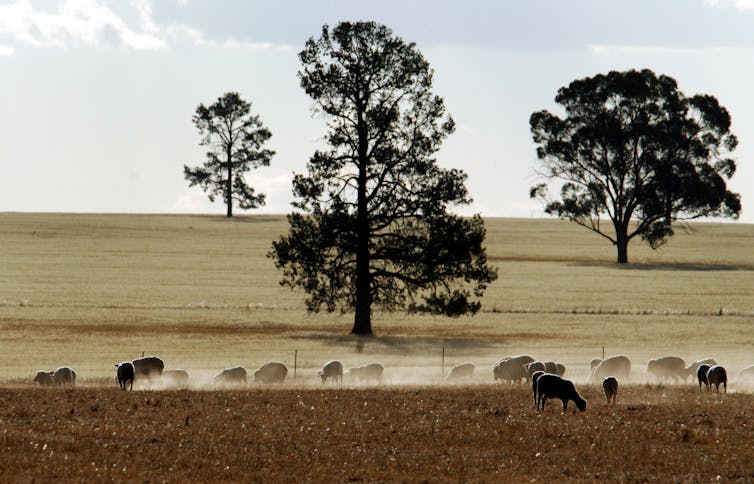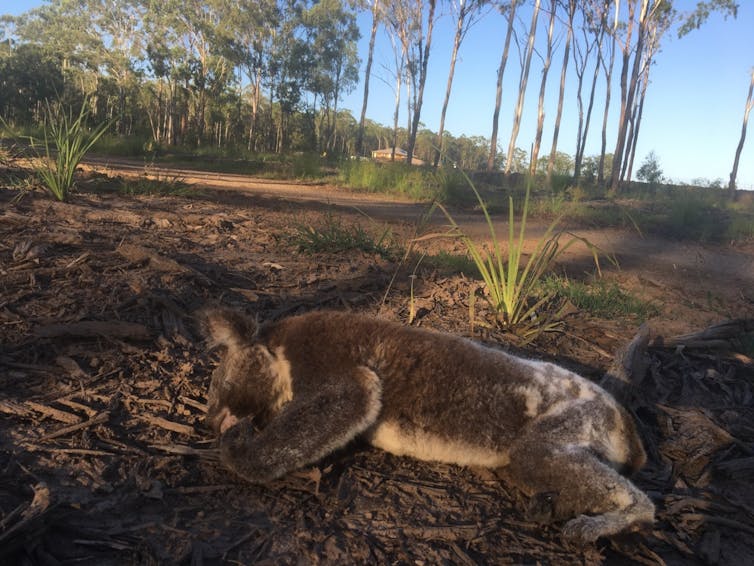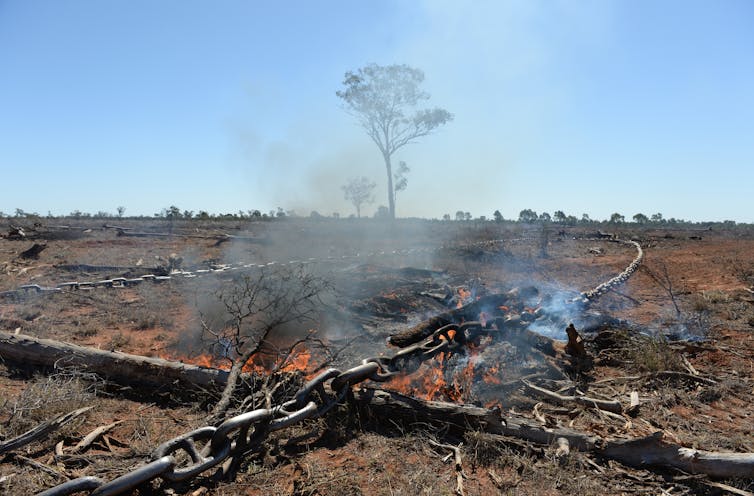Farmers, murder and the media: getting to the bottom of the city-country divide
- Written by Tanya M Howard, Senior research fellow, University of New England
It’s five years since government worker Glen Turner was murdered by a farmer in a confrontation over land clearing laws. Media reporting after his death frequently propagated the image of the “poor farmer” at the mercy of laws enforced by out-of-touch city elites.
This narrative of an urban-rural divide reared its head again in recent days, when Nationals leader Michael McCormack derided “inner-city raving lunatics” who linked the bushfire crisis to climate change. Such rhetoric may appeal to a conservative party base or media audience, but does little for rural communities in the long run.
As farmers face the ever-worsening impacts of drought and climate change, strong environmental protections are required to protect water and other resources. We must better understand how divisive narratives, often serving political interests, are devised and dispersed.
Nowhere is this narrative more frequently rolled out than in northwest New South Wales, where tensions over land clearing have triggered a complex interplay between the media, farmers and politicians - fuelled by the tragedy of Turner’s murder.
 Sheep graze on mostly cleared land near Hay, New South Wales.
Dean Lewins/AAP
Sheep graze on mostly cleared land near Hay, New South Wales.
Dean Lewins/AAP
Land clearing is a hot-button issue
Land clearing is a serious global environmental concern, and eastern Australia is one of the world’s deforestation hotspots.
However, regulations to limit land clearing have long been opposed by farmers who say they affect profitability. This message has been politically potent in NSW, and in 2016 legislative reform removed key checks on native vegetation clearing.
Read more: Our nature laws are being overhauled. Here are 7 things we must fix
In the state’s northwest, native vegetation and koala habitat is at risk of extinction due to land clearing. Broad-acre farm machinery and technology works best in large, flat paddocks uninterrupted by trees. The high costs of these technologies feed the economic pressure to cultivate increasing areas of land.
But as climate change and drought increasingly bring dust storms, bushfires and water shortages to rural areas, natural resources such as water, soil and vegetation have never been more valuable.
 A dead koala outside Ipswich in 2017. Conservationists attributed the death to land clearing.
JIM DODRILL/THE WILDERNESS SOCIETY
A dead koala outside Ipswich in 2017. Conservationists attributed the death to land clearing.
JIM DODRILL/THE WILDERNESS SOCIETY
Latte sippers vs poor farmers
Turner’s murder by farmer Ian Turnbull occurred at Croppa Creek in northwest NSW, in the shadow of pending reforms to environment laws. In the days afterwards, rural politicians publicly expressed outrage at land-clearing regulations and claimed Turner’s death was “brought about by bad legislation”.
Media reports in the period between the murder and Turnbull’s sentencing were essentially a de facto trial of the legitimacy of land-clearing laws. Several sources implied that the compliance regime was somehow to blame for Turner’s death. These results supported findings by Amnesty International and Global Witness that weak enforcement of environmental law increases the risks to those who work on the frontline of land-use conflicts.
 Murdered compliance officer Glen Turner.
Supplied by family
Murdered compliance officer Glen Turner.
Supplied by family
The media narrative fed on a supposed contest between biodiversity and agricultural production. Some coverage drew on libertarian notions of property rights and autonomy to justify resistance to the law. This includes radio broadcaster Alan Jones, who reportedly told listeners that environment officials enforcing native vegetation laws displayed “the kind of behaviour that leads people to murder”.
A complicit media
In recent months, landholders in northwest NSW engaged a public relations company to launch a campaign to have historic land-clearing charges dropped.
The PR onslaught included recruiting 2GB radio presenter Ben Fordham to the cause and lobbying key NSW National Party figures John Barilaro and Adam Marshall.
In July this year, Fordham said struggling farmers penalised for cleared vegetation on their farms were being forced off their land, reportedly telling listeners:
They are facing the prospect of fines of a million dollars, and having land locked up for 100 years. They face fines of A$13,000 for every day they refuse to answer questions. Talk about bullies!
The state government has since announced an amnesty for hundreds of farmers who faced penalties under old land-clearing laws. It is logical to assume the farmers’ campaign, and its emphasis on city-country tensions, influenced the government’s decision.
But the divisive rhetoric, and the resulting government decision, do not serve farming communities and come at the cost of a sound balance between production and conservation.
 A chain used for land clearing is dragged over a pile of burning wood on a Queensland property.
Dan Peled/AAP
A chain used for land clearing is dragged over a pile of burning wood on a Queensland property.
Dan Peled/AAP
We must do better
Better understanding of how narratives of legitimacy and resistance are constructed is important for environmental policymakers around the world. This is especially true as climate change threatens social and economic conditions.
Rural communities need environmental regulation that acknowledges their existential concerns, such as access to water, arable land and economic markets. The broader Australian public need regulation that finds the best balance between production and environmental values.
Read more: Environment laws have failed to tackle the extinction emergency. Here's the proof
In 1992, state and federal governments committed to a national strategy for ecologically sustainable development that “improves the total quality of life, both now and in the future, in a way that maintains the ecological processes on which life depends”.
We aren’t there yet. Political will can either help achieve these aims, or obstruct progress by stoking city-country tensions.
Note: A coronial inquest into the circumstance surrounding the death of Glen Turner was announced in 2017 but is yet to be held.
Authors: Tanya M Howard, Senior research fellow, University of New England





